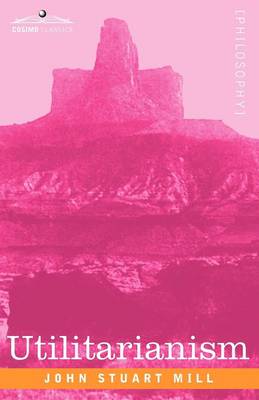Everyman's University Paperbacks
1 total work
What is the foundation upon which moral judgments are made? Why and how do we conclude that an action, performed or contemplated, is right or wrong, good or bad? In the eighteenth century, English philosopher Jeremy Bentham developed the now famous moral theory known as utilitarianism, which is based upon the pleasure principle - a concept whose history can be traced back to the ancient Greek philosopher Epicurus and to Hedonism.
In his acclaimed essay Utilitarianism (1863), John Stuart Mill, the intellectual creation of his father (James Mill) and Jeremy Bentham, discusses in considerable detail this powerful and influential principle that grounds the judgment of human action on the extent to which it would result in pleasure or happiness for the greatest number of people. In doing so, Mill not only analyzes objections to the principle of utility, but also distinguishes his own unique interpretation of the principle, thus beginning a self-critical approach to the development and refinement of utilitarian moral theory that remains vigorous to this day.
In his acclaimed essay Utilitarianism (1863), John Stuart Mill, the intellectual creation of his father (James Mill) and Jeremy Bentham, discusses in considerable detail this powerful and influential principle that grounds the judgment of human action on the extent to which it would result in pleasure or happiness for the greatest number of people. In doing so, Mill not only analyzes objections to the principle of utility, but also distinguishes his own unique interpretation of the principle, thus beginning a self-critical approach to the development and refinement of utilitarian moral theory that remains vigorous to this day.
